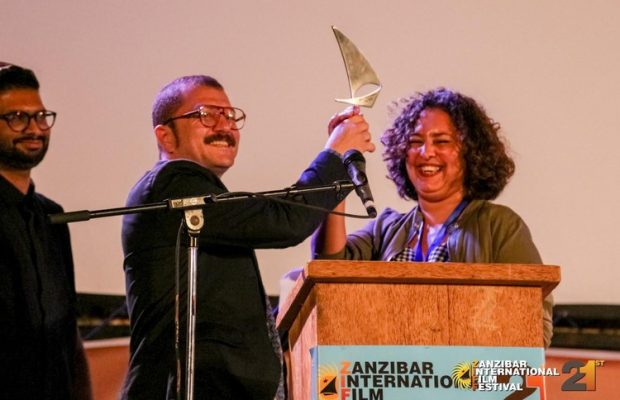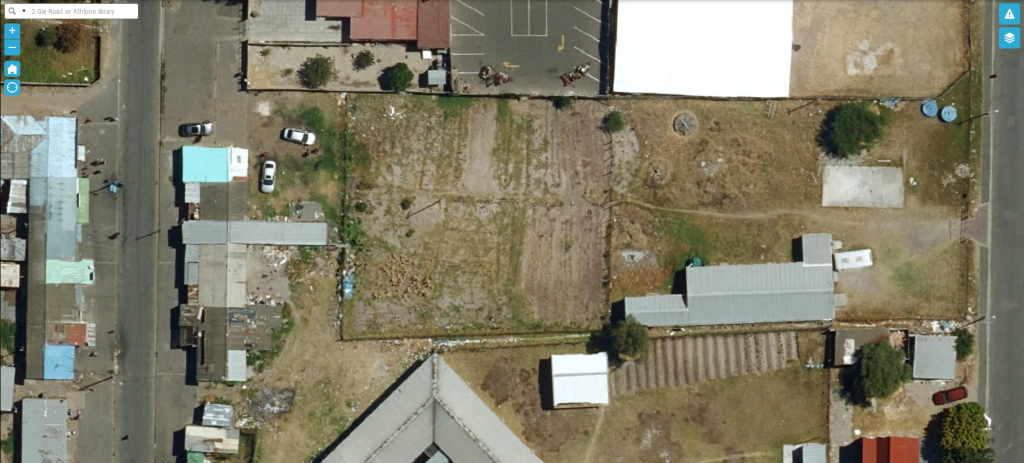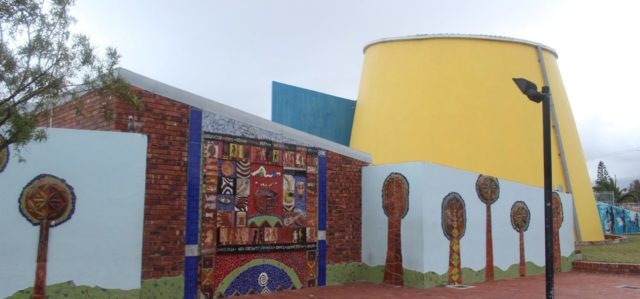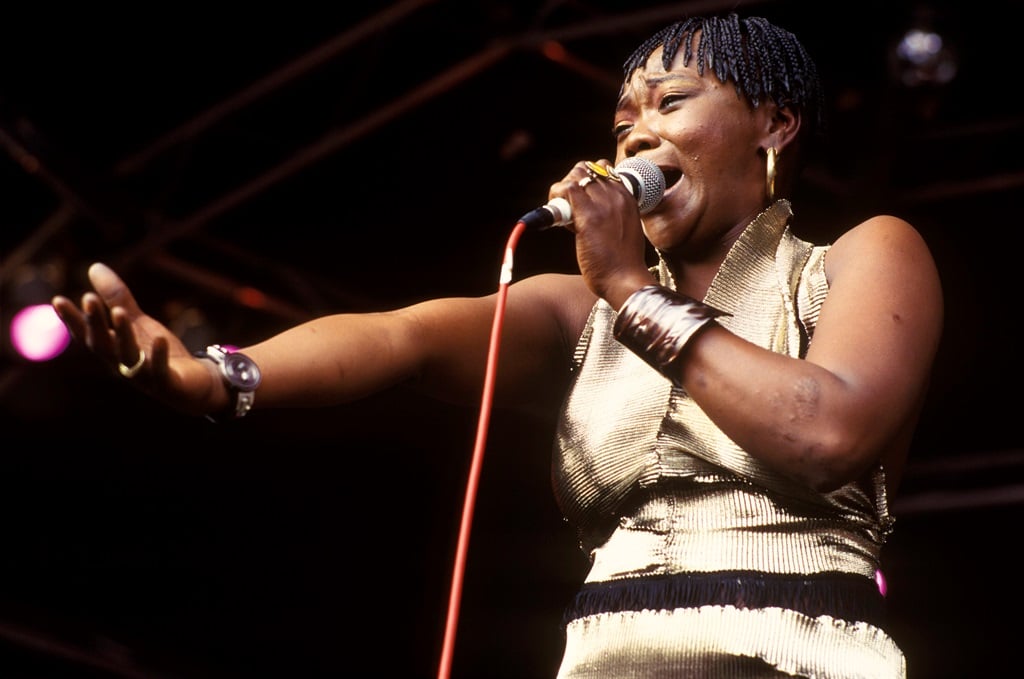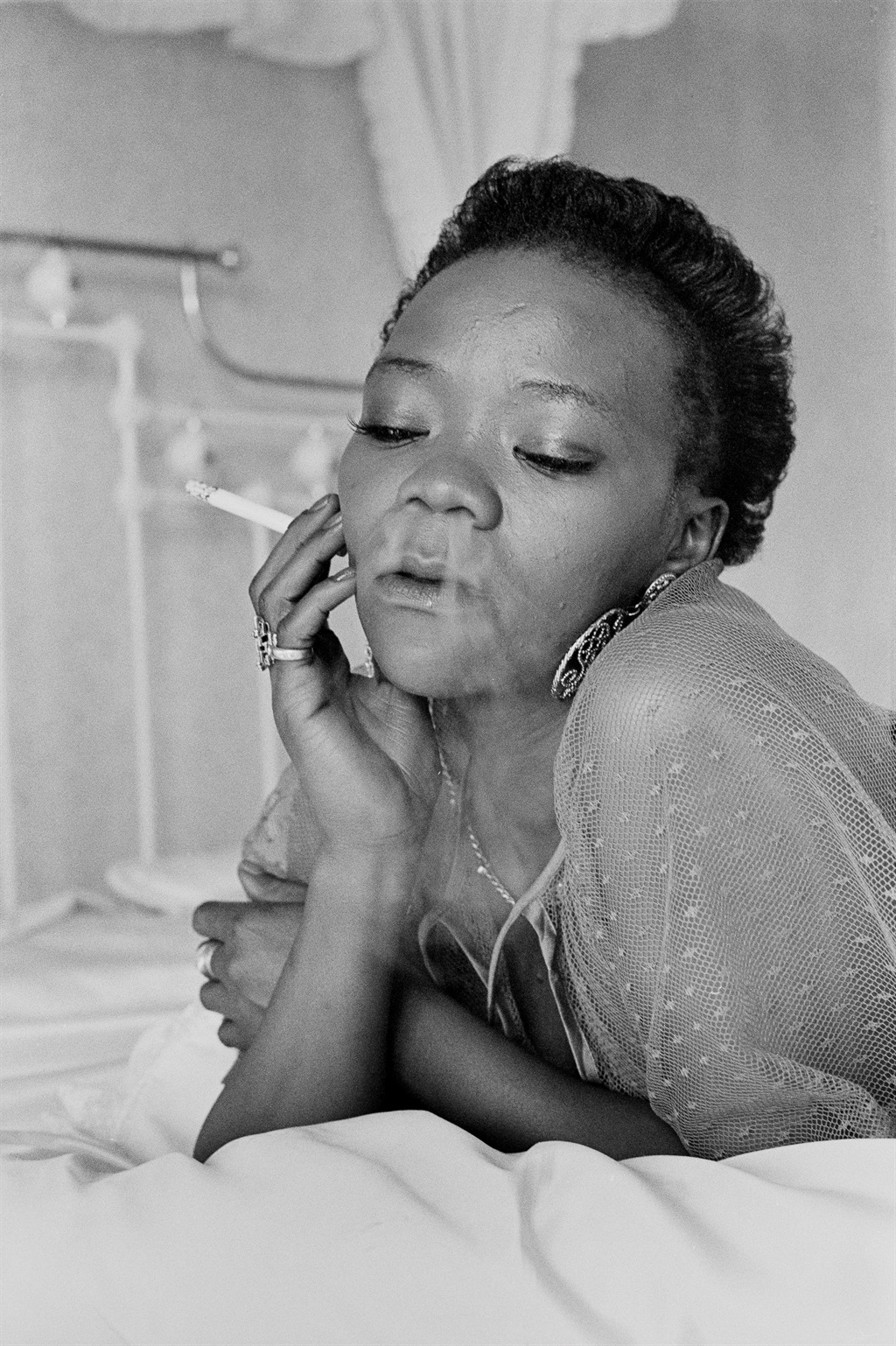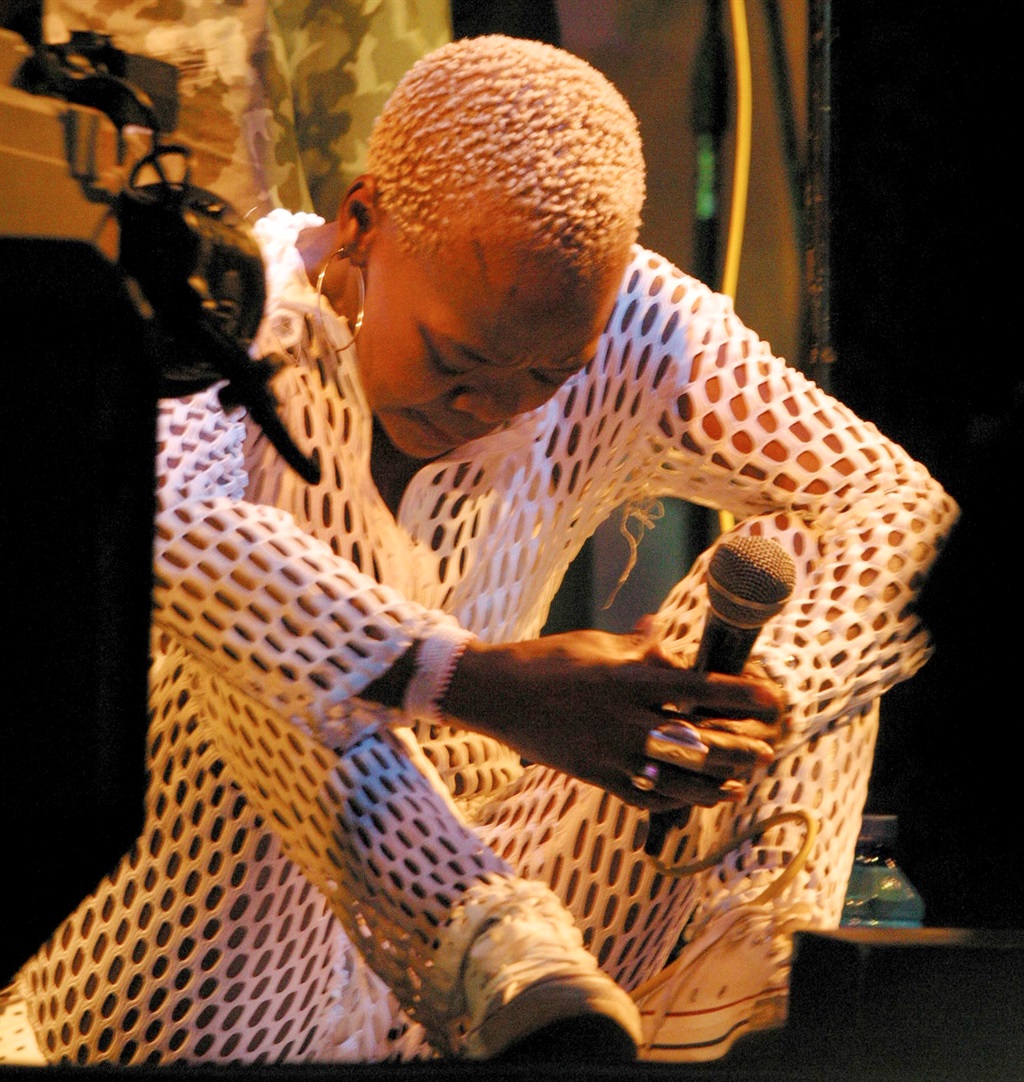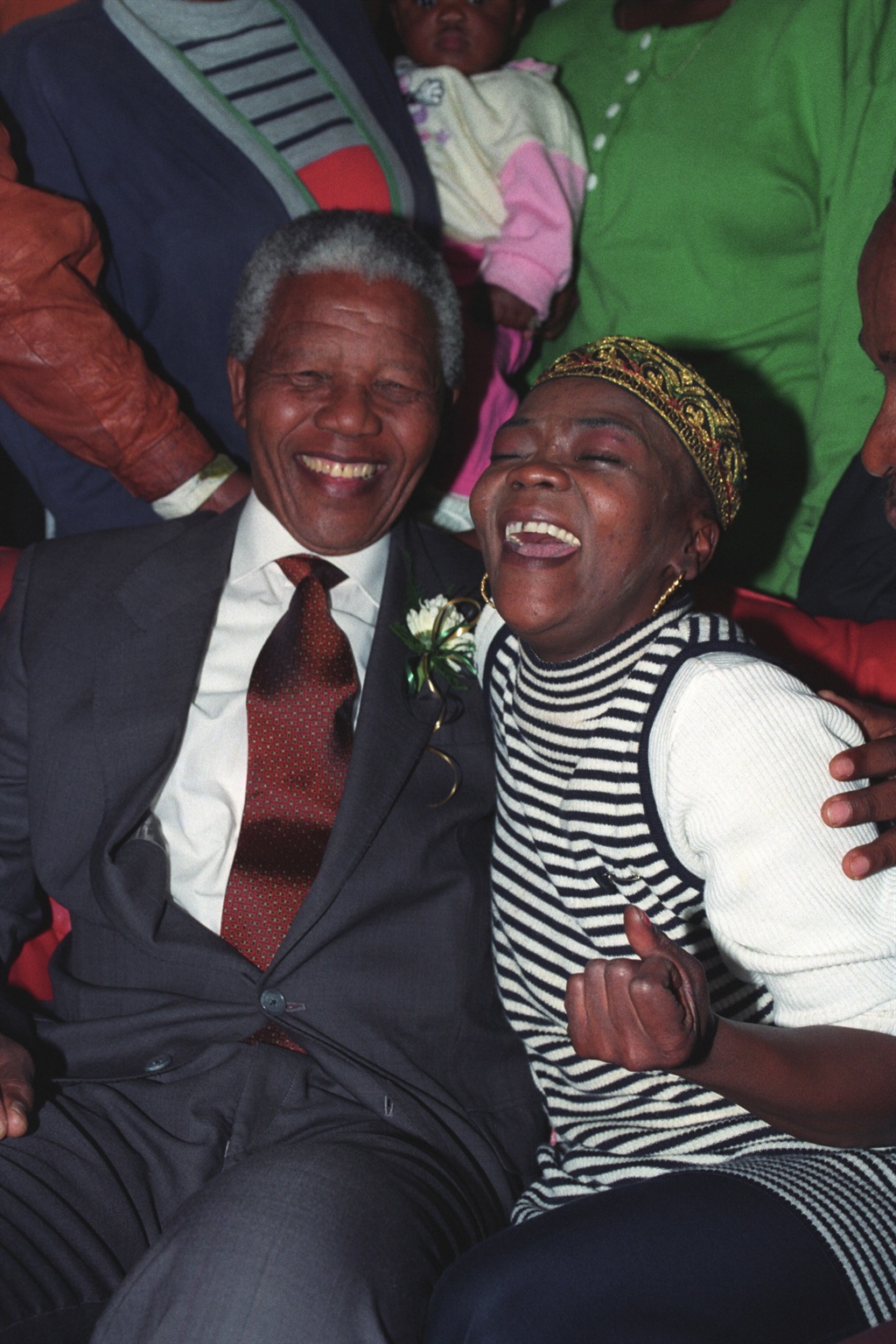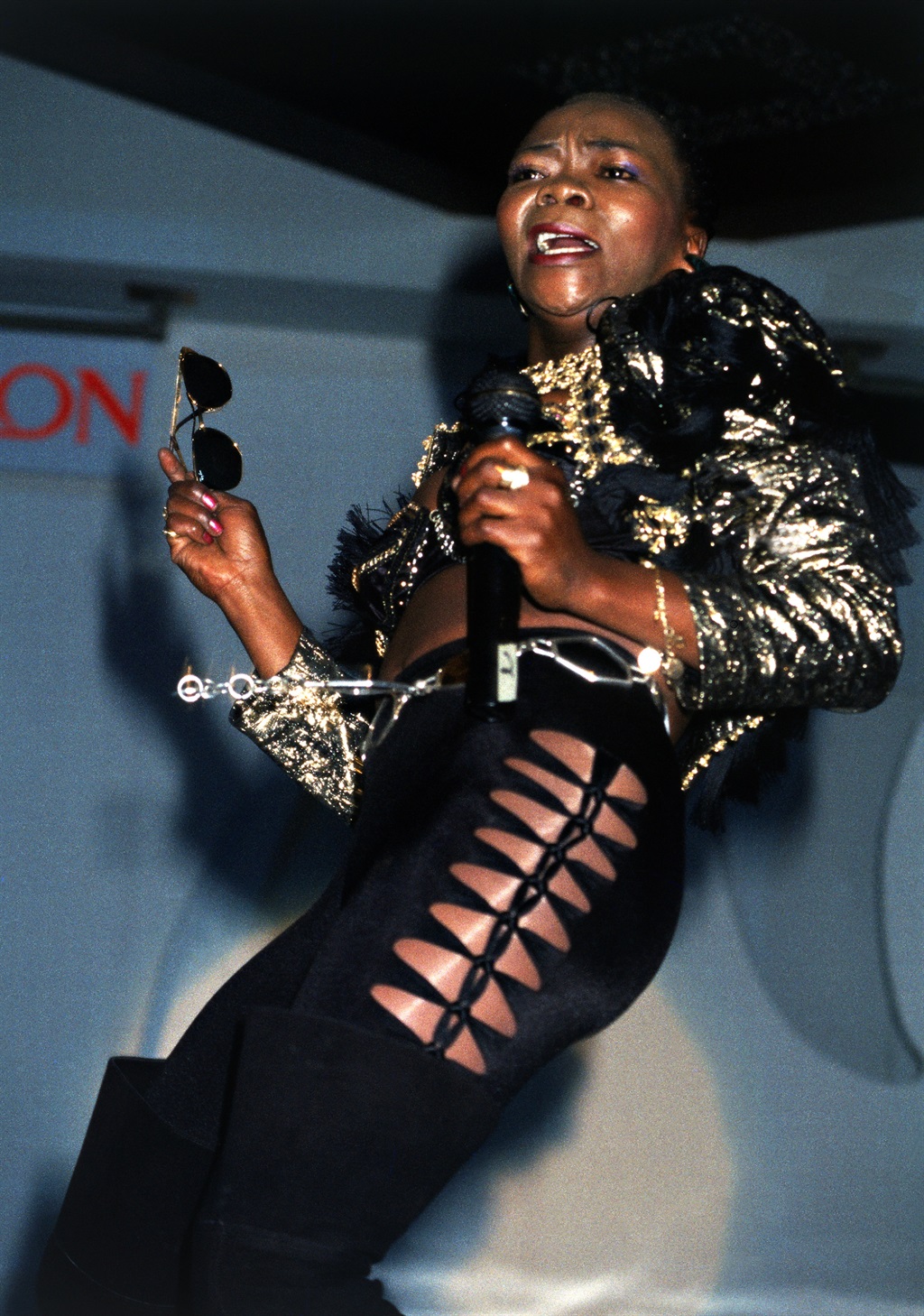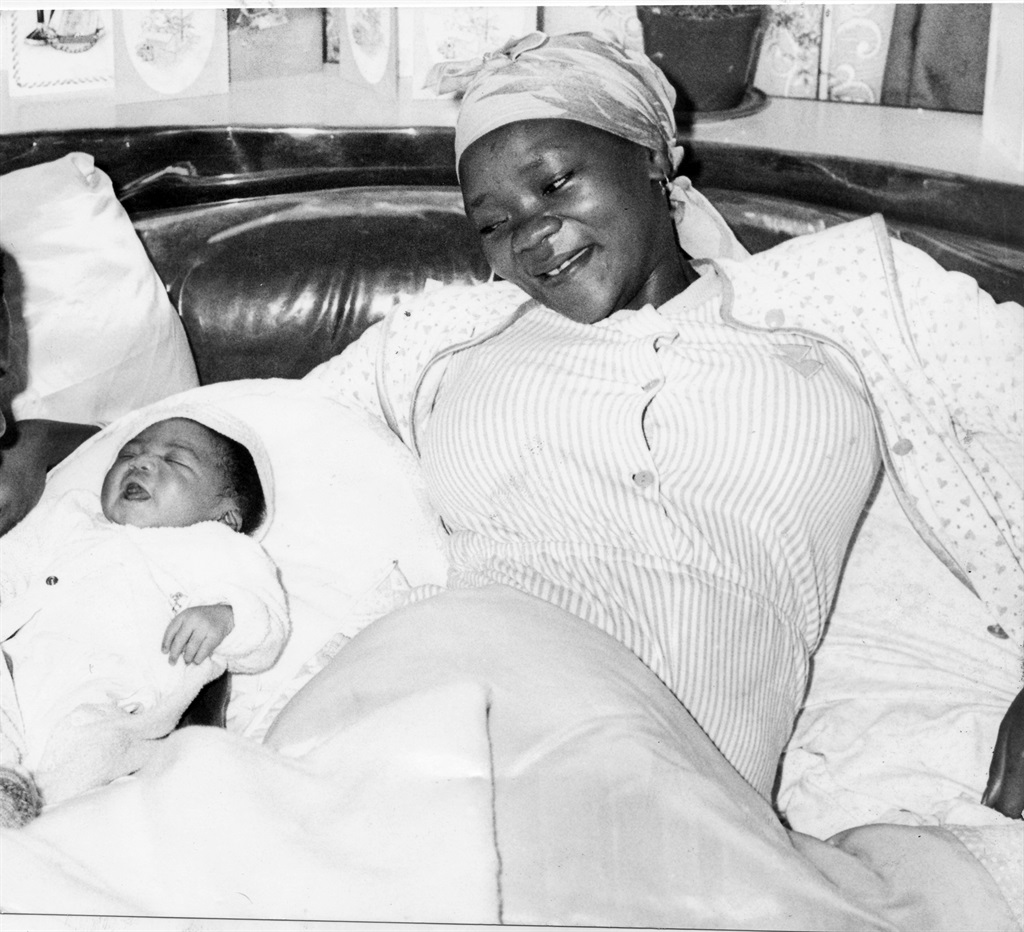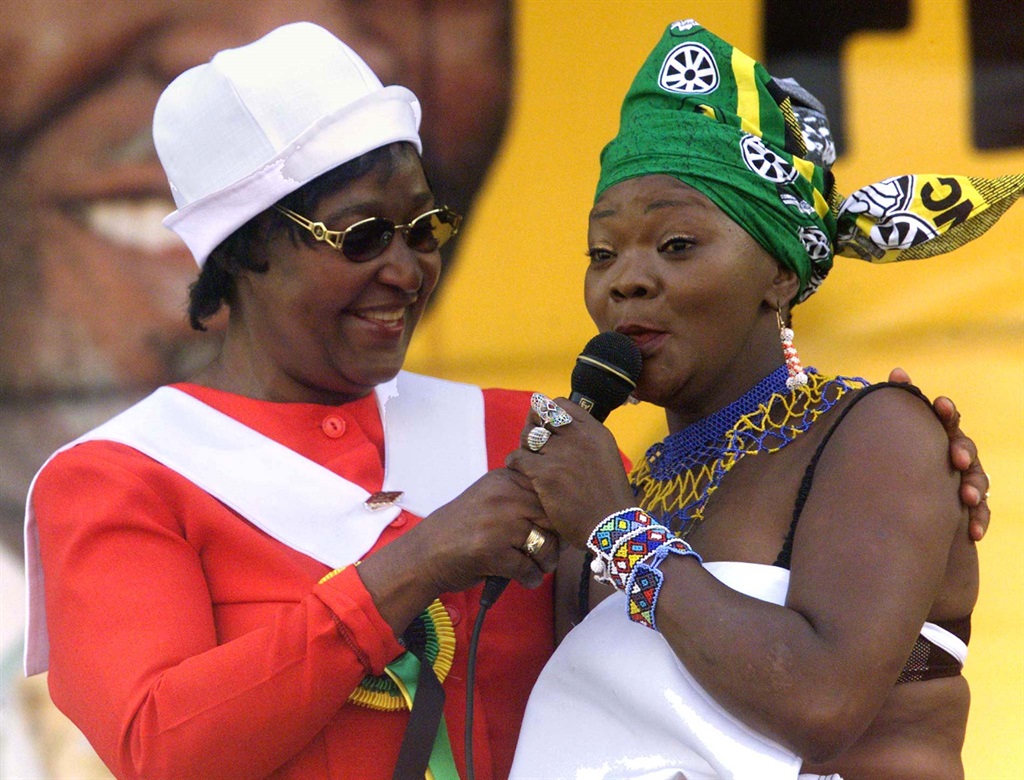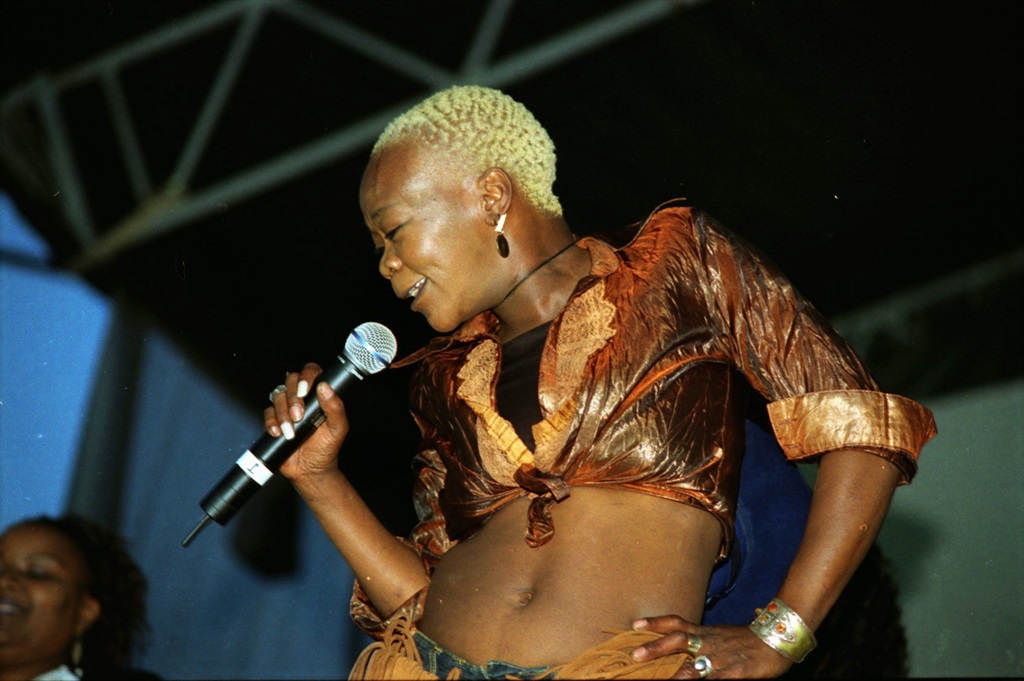24 May 2004
Brenda Fassie, South Africa’s undisputed queen of pop, was buried at her birthplace in Langa, Cape Town on Saturday 22 May 2004.
“MaBrrr”,
as Fassie was known by millions of fans in worldwide, died on 9 May at
Johannesburg’s Sunninghill Hospital, where she was admitted on 26 April
after an asthma attack led to cardio-respiratory arrest. She was 39
years old.
Nelson Mandela and President Thabo Mbeki were among
those who visited Fassie as she lay in a coma for over a week, but it
was already “Too Late for Mama” – one of many songs that Fassie was
famous for.
Fassie was the best-known – and arguably most
controversial – figure in South African township pop, scoring a huge hit
in 1983 with her debut maxi single “Weekend Special”, recorded with her
band The Big Dudes, before embarking on two decades of hard living that
put The Rolling Stones to shame.
The outspoken Fassie went
through drug addiction, divorce, the death of her lesbian lover and
more, yet throughout her turbulent life she continued to deliver the
goods, becoming the biggest-selling artist South Africa has produced.
‘Madonna of the Townships’
Born in Langa township in 1964, the youngest in a family of nine,
Brenda Fassie’s musical career began at the age of four when, inspired
by her pianist mother, she formed a singing group, the Tiny Tots.
By
the time she was 14, armed with a power-packed, gutsy voice and
determination to match, she had moved to Johannesburg to seek fame and
fortune.
Dubbed the “Madonna of the Townships” in a 2001 Time
Magazine interview, Fassie emerged at the height of the anti-apartheid
struggle in the 1980s to give a voice to marginalised black South
Africans.
But while songs like “Black President” told of the
destruction of black aspirations under apartheid, Fassie was also
capable of getting people dancing across the colour line – a feat she
achieved from the start with “Weekend Special” (1983), a funky disco
groove which became South Africa’s fastest-selling single and a hit on
both sides of the Atlantic, making the Billboard Hot Black Singles chart
and featuring in concerts in the US, UK, Europe, Brazil and Australia.
Brenda
left The Big Dudes in the late 1980s to team up with Sello “Chicco”
Twala, one of South Africa’s most accomplished musical producers, a
collaboration that resulted in the 1989 hit album “Too Late for Mama”,
which included the hits “Black President”, “Shoot Them Before They
Grow”, “Stay Away From My Man”, and “Don’t Follow Me I’m Married”.
During
the 1980s Fassie was involved with Big Dudes band member Dumisani
Ngubeni, giving birth to a son, Bongani – now 19 years old.
In 1989 she married Nhlanhla Mbambo, only to divorce him in 1991 amid rumours of physical abuse.
Descent and return
Fassie’s life went into a downward spiral after her divorce, and for
years she checked in and out of drug rehabilitation clinics, missed
gigs, alienated fans, was sued by concert promoters, sank into debt, and
finally woke up next to the body of her lover, Poppie Sihlahla, who had
died after a drug binge, in Johannesburg in 1994.
The following
year, 1996, Fassie made the first of many comebacks, producing her own
album, “Now Is The Time”, in which she performed two duets with
Congolese superstar Papa Wemba.
Her 1997 album “Paparazzi” failed
to impress, but in 1998 she teamed up with Twala again on the album
“Memeza” (“Shout”), which included the song “Vulindlela” and earned
Fassie the South African Music Awards (Samas) award for best-selling
release of the year.
“Vul’indlela” (“Clear the path” or “Make
way”) became a hit through Africa and also earned Fassie the 1999
continental Kora award for best female artist.
Fassie scooped the
Samas best-selling release award for the next three years running with
the albums “Nomakanjani” (1999), “Amadlozi” (2000) – featuring the hits
“Thola ‘madlozi” and “Nakupenda” – and “Mina Nawe” (2001), all produced
by Twala.
In 2001 Fassie released “Brenda’s Greatest Hits” – also a massive seller – followed by “Myekeleni” in 2002 and “Mali” in 2004.
According
to The Star Tonight, “Nomakanjani” sold 525 000 copies, while “Memeza”
sold half a million copies. “No other South African artist has ever come
close to this record”, Tonight notes, “not even top-selling gospel star
Rebecca Malope, whose album sales are thought to be closer to the 250
000 mark.
“This means Brenda will take the Best-Selling Album of
the Decade award at the South African Music Awards (Samas) at the end of
the month.”
‘I’m a shocker’
Throughout, Fassie continued to stir controversy with outrageous
behaviour and a turbulent private life. She openly admitted to being a
drug addict and bisexual – taboo in the townships – and her antics, both
on and off the stage, made her a regular target for tabloid fodder in
the Sunday papers.
Jan Hennop, writing for AFP, recalls a 2001
performance in a club in Washington, DC, during which Fassie’s breasts
popped out of her costume. “The audience gasped, but Fassie unabashedly
grabbed her bare bosom and thrust it at the crowd”, Time Magazine said
of the show. “This”, she proclaimed, “is Africa!”
“I’m a shocker. I like to create controversy. It’s my trademark”, she once said in an interview.
At
the same time, Fassie remained a central figure in the development of
township pop, as her music shifted from the “bubblegum” of the 1980s to
the edges of the dominant kwaito style of the late 1990s.
Hennop
writes: “In the latter stages of her career her voice also matured, as
she sang in the ‘kwaito’ township style – a combination of hip-hop,
slowed-down ‘house’ music with traditional African bass, sung mainly in
Xhosa, Zulu and Sotho.”
Right up until her death, Fassie was the
consummate rock ‘n roll survivor, and the outrageous template for
musical superstardom township-style.
‘What Brenda meant to South Africa’
The Cape Times, in an editorial entitled “Forever young”, echoed the
sentiments of many of her fans: “Brenda Fassie was many things:
immensely talented, tempestuous and outrageous being among them. But she
was never boring. Indeed, she has been called a pioneer, a trendsetter
and an icon whose passing will leave a huge vacuum in the music
industry.
“Farewell, Brenda. You will stay forever young in the hearts of your millions of fans around the world.”
ThisDay,
in its editorial, “What Brenda meant to South Africa”, went deeper:
“Whoever tells Fassie’s story will remind us that she could sing like no
other, and that she gave us music to last a lifetime …
“Beyond
the politics and the music, however, it should never be forgotten that
Fassie was always enveloped by a deep sadness … Could it have been
because she had a hole in her soul that all the fame, money and
hangers-on could not fill?
“Many of the world’s greatest musicians
had a similar affliction, and they too died prematurely: Elvis Presley,
Jimi Hendrix, Janis Joplin, Kurt Cobain. In all of their lives
something was amiss.
“In Fassie’s case the causes are not hard to
find: she grew up black and a woman in a country that hated black people
and women. Though she ended up dying in a luxury clinic in
Johannesburg, her childhood was spent in Langa, a rough township on the
Cape Flats where not much has changed in the three decades since she
left it in pursuit of bigger dreams …
“For every Fassie who makes
it out, who knows how many others are lost to drugs, Aids and general
despair? Who knows how a Weekend Special turns out?
“All the
politicians who streamed to her bedside last week, and who will no doubt
be at her funeral, would do well to consider that perhaps Fassie died
of a broken heart.”
As Fassie herself once said: “I wanna be loved. I just wanna be loved.”
SouthAfrica.info reporter
